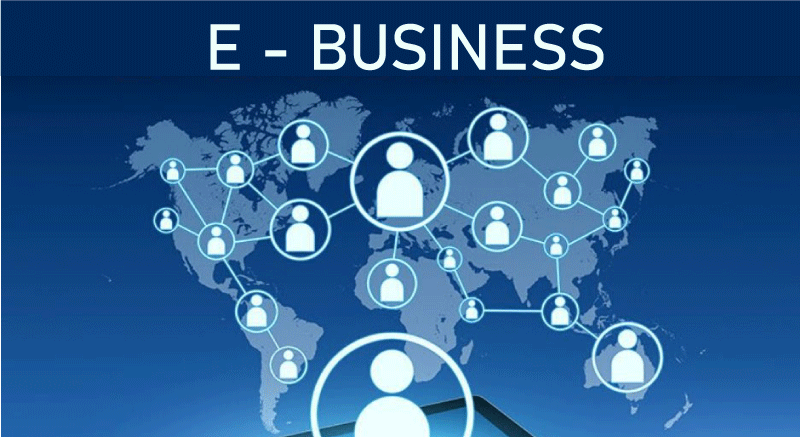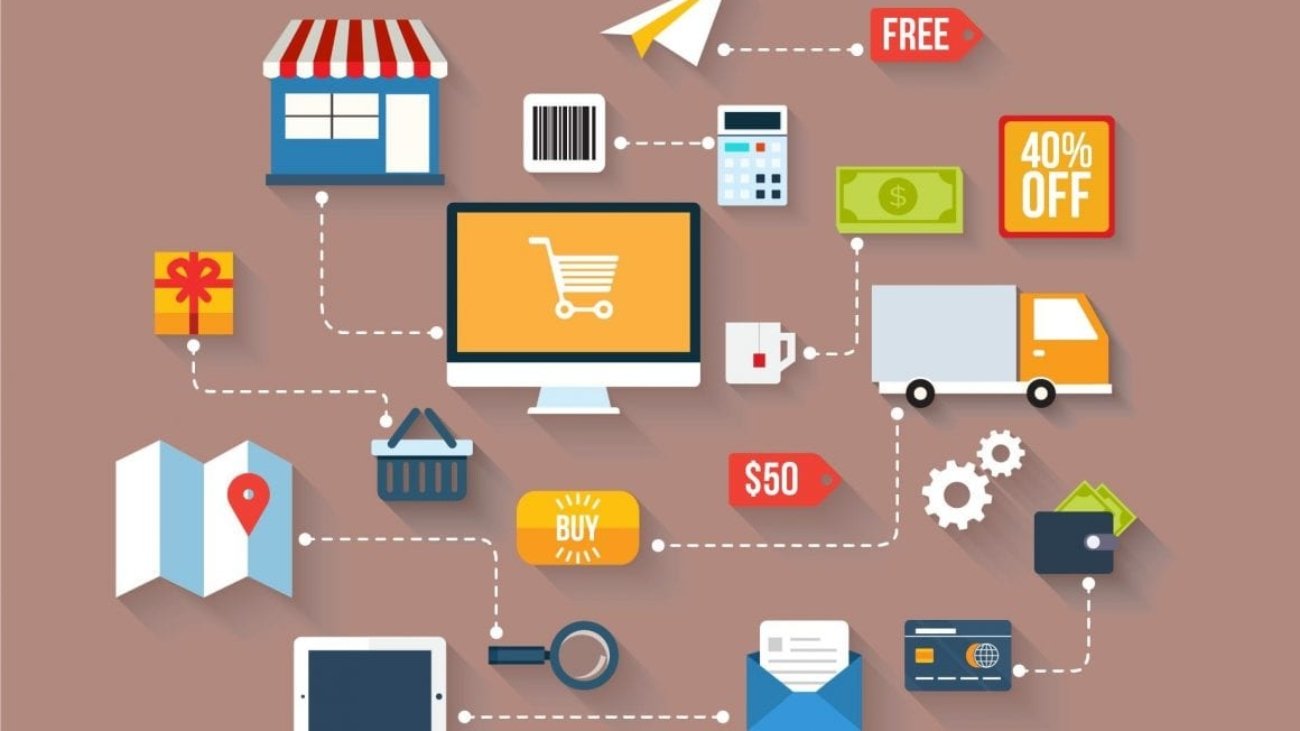E-BUSINESSES
E-business, or electronic business, refers to the conduct of business processes and transactions over the internet. It encompasses a wide range of activities, including online buying and selling of products and services, digital marketing, electronic data interchange (EDI), online supply chain management, and internet banking. E-business allows companies to reach a global audience, operate 24/7, reduce operational costs, and improve efficiency through automation and real-time data processing.

What is the term E-BUSINESS ?
The term “e-business” refers to the use of internet technologies to conduct business processes and operations. This includes activities such as buying and selling products and services online, managing supply chains, processing payments, and handling customer service digitally. E-business leverages electronic communication tools like email, social media, and websites to interact with customers, suppliers, and partners. By integrating digital solutions, businesses can streamline operations, reduce costs, and reach a broader audience. E-business encompasses not just e-commerce, which focuses on online sales, but also internal processes such as inventory management, knowledge sharing, and employee communication.
Is e-business reliable for social media platforms ?
E-businesses can leverage social media platforms effectively, but their reliability varies depending on the platform and the specific business needs. Social media platforms like Facebook, Instagram, Twitter, and LinkedIn offer powerful tools for marketing, customer engagement, and sales. These platforms provide businesses with the ability to reach large audiences, target specific demographics with customers in real-time. However, the reliability of each platform depends on factors such as the target audience, the type of products or services offered, and the platform’s features and algorithms. Some platforms may be more suitable for visual products, like fashion and lifestyle items on Instagram, while others, like LinkedIn, are better for B2B services and professional networking. Additionally, the ever-changing nature of social media algorithms and policies can impact an e-businesses reach and engagement.
What are the startups for E-BUSINESSES ?
Startups in the e-business sector encompass a wide array of innovative ventures aimed at leveraging digital technologies to provide unique products or services online. These startups can range from e-commerce platforms that sell niche products, such as handmade crafts or specialty foods, to subscription services offering curated monthly deliveries of items like beauty products or books. Other popular e-business startups include digital marketplaces that connect freelancers with clients, online educational platforms providing courses and training, and fintech companies offering digital payment solutions and financial services. Additionally, startups focusing on software-as-a-service (SaaS) provide tools for business operations, such as customer relationship management (CRM) systems, project management tools, and marketing automation software.
What are the career opportunities for E-BUSINESS ?
Career opportunities in e-business are vast and diverse, reflecting the growing reliance on digital technologies in commerce. Professionals can pursue roles such as digital marketing specialists, who develop online marketing strategies; e-commerce managers, who oversee online sales platforms; and data analysts, who interpret web traffic and customer behavior data to optimize business strategies. Additionally, careers in web development and UX/UI design are critical for creating user-friendly online experiences. Cybersecurity experts are also in demand to propagate.
Moreover, roles in supply chain management, logistics, and customer service are evolving to incorporate e-business tools, making these fields dynamic and integral to modern commerce. As businesses continue to expand their digital footprint, the demand for skilled professionals in e-business will only increase, offering numerous opportunities for career growth and innovation.
Are E-BUSINESSES being effective for economic developments ?
E-businesses play a crucial role in driving economic development by fostering innovation, creating jobs, and increasing market efficiency. They enable businesses of all sizes to access global markets, thereby expanding their customer base and revenue potential. This global reach helps small and medium-sized enterprises (SMEs) compete with larger corporations, promoting a more balanced economic landscape. E-businesses also contribute to the economy by streamlining operations and reducing costs through automation and efficient digital processes. Additionally, they spur the growth of related industries such as logistics, cybersecurity, and digital marketing. By enhancing consumer access to goods and services, e-businesses drive demand and stimulate production. Furthermore, the proliferation of e-businesses encourages the development of digital infrastructure and skills, which are essential for a modern, knowledge-based economy.
In sum, e-businesses significantly impact economic development by enhancing productivity, fostering competition, and opening new opportunities for innovation and growth.The proliferation of e-businesses necessitates the development of robust digital infrastructure, such as high-speed internet and secure online payment systems, and fosters the acquisition of digital skills among the workforce. This infrastructure and skill development are essential for a modern, knowledge-based economy, as they enable continued innovation and economic resilience.
What are the benefits of E-BUSINESSES as compared with offline businesses ?
E-businesses offer numerous benefits compared to offline businesses, primarily due to their ability to leverage digital technologies for enhanced efficiency, reach, and customer engagement. One of the most significant advantages is the ability to operate 24/7, allowing customers to browse and purchase products or services at any time, which can significantly increase sales and customer satisfaction. E-businesses also have lower operational costs, as they often require less physical infrastructure and can automate many processes such as inventory management, customer service, and marketing. This reduction in overhead can lead to higher profit margins.
E-businesses have a global reach, enabling them to attract and serve customers from around the world without the limitations of geographical boundaries. This global presence not only expands the potential customer base but also allows businesses to tap into diverse markets and increase their revenue streams. E-businesses can also gather and analyze large amounts of data on customer behavior and preferences, providing valuable insights that can be used to tailor marketing strategies, improve products, and enhance the overall customer experience.
Offline businesses are often limited by their physical location, operating hours, and higher operational costs associated with maintaining brick-and-mortar stores. They may also struggle to collect and analyze customer data as efficiently as e-businesses. Additionally, e-businesses can quickly adapt to market changes and consumer trends by updating their websites and online offerings, whereas offline businesses may require more time and resources to implement changes. Overall, the benefits of e-businesses, including extended operational hours, reduced costs, global reach, data-driven decision-making, and adaptability, make them a highly attractive option compared to traditional offline businesses.
